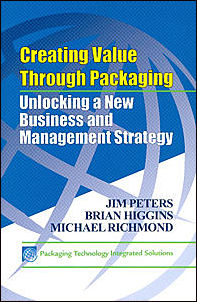Agreement to be Signed for Bio-Based Plastic Carton Packaging in Brazil
Low-density polyethylene from a renewable source planned to be used.

In a reported first for the carton packaging industry, Tetra Pak, one of the leaders in food processing and packaging solutions, plans to sign an agreement with Braskem, a large thermoplastic resins producer, for the supply of low-density polyethylene (LDPE) made from sugar cane to its packaging material factories in Brazil.
This initiative, which will be limited in scope to Brazil only for the duration of the trial, is scheduled to start during the first quarter of 2014. According to the plan, Tetra Pak will use bio-based LDPE as a component of its packages produced in Brazil. The planned move to bio-based LDPE means that 100 percent of Tetra Pak packages produced in Brazil, about 13 billion, will have up to 82 percent packaging material from renewable sources.
“The new agreement to be signed with Braskem demonstrates our commitment to bring environmental innovations to our customers and is a further step in our journey to develop fully renewable packages,” says Tetra Pak President and Chief Executive Officer Dennis Jönsson.
Braskem will use ethanol derived from sugar cane to produce ethylene, which will then be converted into LDPE. The LDPE made from renewable sugar cane is designed to have the same technical properties as LDPE made from fossil sources and the environmental benefits of being from a renewable source. Braskem biopolymers are known under the trademark "I'm green."
“The new bio-based "I'm green" LDPE is as inert, resistant and recyclable as the polyethylene made from fossil sources but contributes to the reduction of greenhouse gas emissions by absorbing carbon dioxide from the atmosphere during the sugar cane growth process,” says Braskem President Carlos Fadigas. “The expansion of the green products line reinforces our commitment to adding value through sustainable development for the value chain.”
Since 2008, the Brazilian paperboard chain of custody is certified by the Forest Stewardship Council (FSC), which means that all the paper used in the production of Tetra Pak packages comes from forests managed in accordance with responsible forestry management principles.
Looking for a reprint of this article?
From high-res PDFs to custom plaques, order your copy today!








